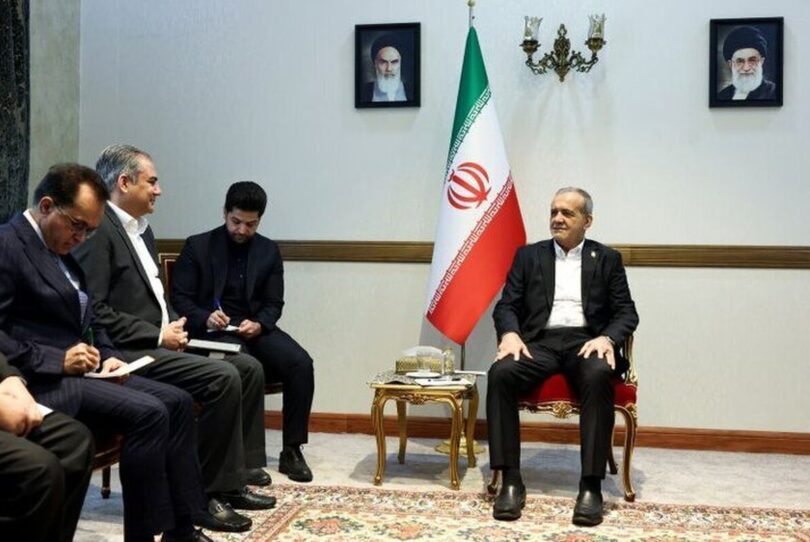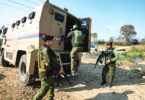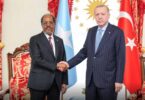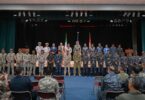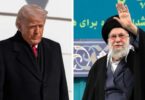Iran has proffered to convoke a regional de-escalation meeting between Pakistan and Afghanistan. Tehran has expressed its willingness to assist in reconciliation and easing tensions between the two nations. Pakistan has welcomed the initiative while there are reports of the Taliban government being engaged with Tehran at the moment. Expected economic shifts are underway as tensions continue between Pakistan and Afghanistan.
In mid-November 2025, Iran’s Foreign Ministry, led by FM Seyed Abbas Araghchi, stated Iran’s decision to convene a regional meeting mediate between Pakistan and Afghanistan’s Taliban government. Tehran stated it was willing to “extend any assistance conducive to reducing tensions between the two neighboring and Muslim countries.”
It is important to highlight that Iran has offered to mediate in the conflict involving the Taliban on numerous occasions. Apart from the recent offer occurring in November 2025, there were other instance when Iran expressed its readiness to mediate. In February 2021, Iran’s special representative for Afghanistan had a meeting with Afghan officials in Kabul in an effort to broker peace between the then- Ghani government and the Taliban as part of a broader peace process. Later in the same year, Iran was planning to host a meeting between the Afghan government and other Afghan groups, potentially including the Taliban, to facilitate intra-Afghan peace talks. Prior to the engagements in 2021, Iran had hosted the Taliban delegation for discussions with Iranian officials after the collapse of US-Taliban peace talks in 2019.
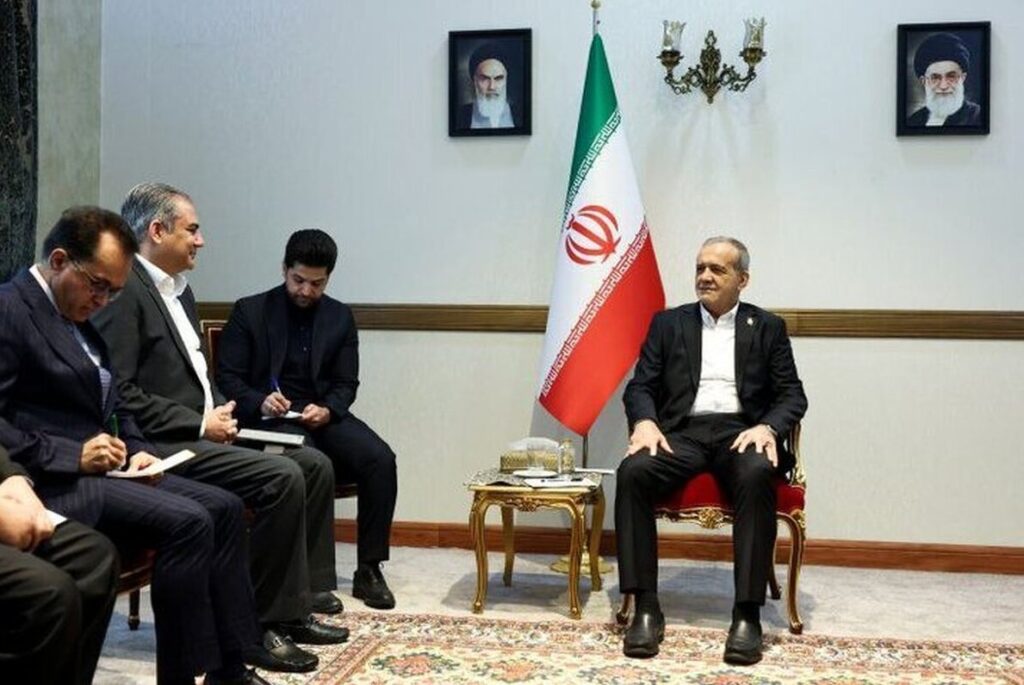
Iran’s diplomatic approach towards the Taliban has transitioned over time from initial hostility in the 1990s to engaging with them as a part of their strategic move to counter US influence in the region.
The recent offer made by Iran was accepted by Pakistan who responded by referring to Iran a “brotherly, friendly country” and signaling its approval for mediated dialogue. Afghanistan’s Taliban also engaged Tehran, appreciating the diplomatic efforts, and reiterated that despite failed talks, the ceasefire between Pakistan and Afghanistan has remained unbroken.
Concurrently, Kabul has catalyzed its measures to diversify trade routes toward Iran and Central Asia, reducing dependence on Pakistan.
Timeline of the clashes and engagement between Afghanistan and Pakistan
- 11–16 Oct 2025: Major clashes erupt along the Pakistan–Afghanistan border, leading to dozens of casualties.
- 19 Oct 2025: A ceasefire is announced after Doha talks which were mediated by Qatar.
- Late Oct – Early Nov 2025: Istanbul talks happen but collapse. Pakistan continues to accuse Kabul of evasiveness while Kabul claims Islamabad’s security demands exceed Afghanistan’s capacity.
- 7–8 Nov 2025: Taliban spokesman Zabihullah Mujahid confirms talks had failed but reiterates that the ceasefire continues to be honored.
- 9–17 Nov 2025: Iran’s FM Araghchi engage with Pakistan’s FM Mohammad Ishaq Dar and Afghanistan’s FM Amir Khan Muttaqi. Iran declares to assist de-escalation and initiates preparations for a regional meeting.
- 11–14 Nov 2025: Afghanistan increases trade through Iran between the ongoing tensions and border disruptions with Pakistan.
GEOPOLITICAL ANALYSIS
The current offer presented by Tehran can be inferred as both necessity and opportunity to Iran, sustaining its position by displaying regional prestige while trying to expand it economic influence in the region. Positioning itself as a stabilizer, Iran seeks to protect its border, maintain some regulation with regards to Afghan refugee population, and transit interests.
Pakistan’s acceptance reflects a logical diplomacy as Islamabad hopes to acquire international legitimacy for its security concerns without escalating into open conflict. Islamabad emphasizes that it has a “strong case” and prioritizes national security, hence it claims its openness to accepting Iran’s mediation while pressuring Kabul over militant groups which Pakistan claims is operating from Afghan soil.
Taliban at the same time strives to preserve its sovereignty while maintaining regional relationships to project itself as a functioning government. Its approach with regards to economic realignment with Tehran concomitantly not only strengthens Iran’s leverage but also reduces Pakistan’s influence over Afghan transit routes.
It is expected that the competing mediation tracks (Doha, Istanbul, Tehran) may shape future negotiations. In the backdrop of the recent developments, regional actors such as Turkey, Qatar and Russia are expected to monitor the developments carefully.
The soon to be talks may yield from a possible reinforced ceasefire or technical agreements to renewed escalation if security demands remain unaddressed. Key variables include India’s Afghan engagement, Russia’s diplomatic role, and the Taliban’s ability to curb non-state actors.
Among the regional actors, India is a variable, which Afghanistan seeks to engage while Pakistan tries to counter to limit its influence.
While clashes waged on the Afghan Pakistan border, Afghan Foreign Minister Amir Khan Muttaqi (Taliban) visited Ned Delhi between 9–16 October 2025. His visit coincided with the border tensions and skirmishes between Pakistan and Afghanistan. This was the first visit by a Taliban minister to India since the formation of the Taliban in 2021. It provided India an opportunity to strengthen ties with Kabul and signal its diplomatic relevance, while also potentially influencing or signaling in the regional security dynamic.
Pakistan has accused Afghanistan (Taliban) of being a “proxy” of India. According to Al Jazeera, Pakistan’s Asif claimed that Afghan leadership was being “controlled by Delhi,” accusing India of using Kabul to wage a low-intensity war.
This provocative behavior from Islamabad may signal the unease about India’s growing engagement with the Taliban leadership. However, the Taliban have refuted Pakistan’s accusations in regards.
It is imperative to note that even though the Pakistan–Afghanistan crisis may be a bilateral conflict, it also connects with New Delhi’s long-term concerns about Pakistan’s regional influence, militancy, and its own role in Afghanistan.
By collaborating with Afghanistan diplomatically now, India may be able to expand its influence in Kabul — potentially as a counterweight to Pakistan and other regional players. By supporting Afghanistan, India can indirectly challenge Pakistan’s narrative of strategic depth and its use of militant proxies.
India may lean more heavily into multilateral and regional diplomatic architecture (Qatar, Turkey, Iran, Central Asia) to safeguard its Afghan interests. Successfully engaging in regional mediation frameworks could give India more influence. However, the risk emerging from instability in the Pakistan-Afghanistan front could also cause a spill over. Escalation might reinforce militant activities, which could have repercussions for India’s own security. Moreover, if Pakistan frames its border issue in terms of India-backed Taliban influence, it could use that narrative to justify aggressive postures elsewhere. Hence the outcome from the Pakistan Taliban mediation will be an important issue for India to monitor and also deliberate on with regards to its regional strategic interest.
More on the relationship between Pakistan and Afghanistan:
Pakistan’s Forged Alliance with ISIS-K: https://www.thestrategicperspective.org/pakistans-forged-alliance-with-isis-k/
India and the G2 Factor: https://www.thestrategicperspective.org/india-and-the-g2-factor/
India’s Strategic Engagement with the Taliban: Realignment and Implications for Pakistan: https://www.thestrategicperspective.org/indias-strategic-engagement-with-the-taliban-realignment-and-implications-for-pakistan/
Policy Analysis: Pakistan–Taliban Relations and the October 2025 Ceasefire — Strategic Fracture or Diplomatic Reset? https://www.thestrategicperspective.org/policy-analysis-pakistan-taliban-relations-and-the-october-2025-ceasefire-strategic-failure-or-diplomatic-reset/
Between Partnership and Antagonism: Pakistan–Taliban Relations since 2021: https://www.thestrategicperspective.org/between-partnership-and-antagonism-pakistan-taliban-relations-since-2021/
US-Taliban Scrimmage over the Afghan Bagram Air base: https://www.thestrategicperspective.org/us-taliban-scrimmage-over-the-afghan-bagram-air-base/
Pakistan’s Operation Sarbakaf in Khyber Pakhtunkwa: https://www.thestrategicperspective.org/pakistans-operation-sarbakaf-in-khyber-pakhtunkwa/


